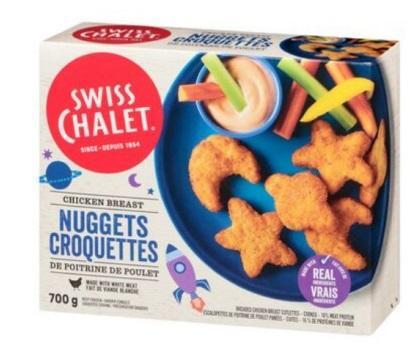Swiss Chalet frozen chicken breast nuggets are being recalled nationwide due to the potential presence of bone fragments in the product, federal health officials say.
The “extraneous material” recall was triggered by Olymel, the company that makes the chicken nuggets, after injuries associated with the consumption of the product were reported, the Canadian Food Inspection Agency (CFIA) said in a Feb. 19 advisory.





